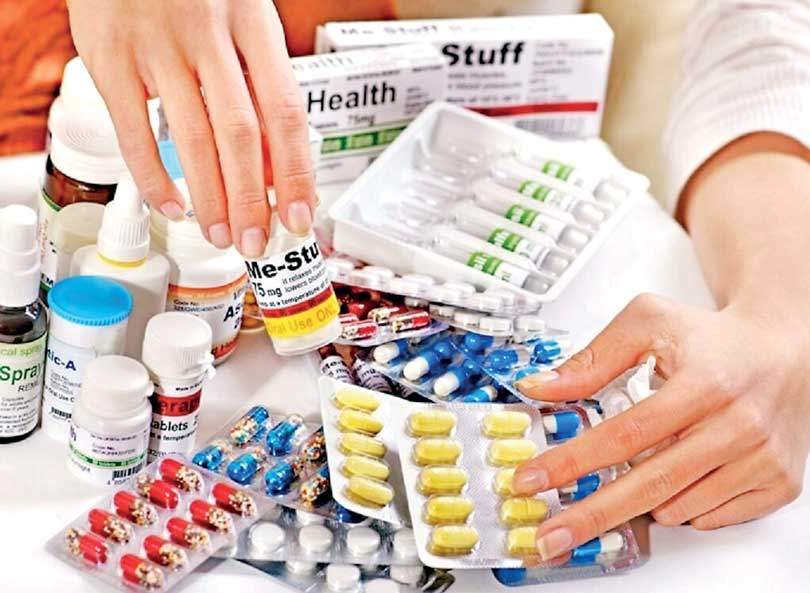Monday Feb 16, 2026
Monday Feb 16, 2026
Tuesday, 25 June 2024 00:02 - - {{hitsCtrl.values.hits}}

Instead of harping on price, however politically popular it may be, the authorities should concentrate on preserving the quality of medicines
By a Special Correspondent
I recently had to see my doctor (who is also a personal friend) regarding some infected skin wounds that I had developed on my forearms. Little did I know that this would lead to the horrific realisation of the problems that the public are facing when obtaining their medications.
I was prescribed a cream called Fusidic acid and the doctor, being a friend, wrote it by brand and told me that this is the original product which would be a little difficult to find. With that recommendation I went to almost a dozen pharmacies and was informed at each one that it was not available and was offered various substitutes, some of the same medicine and some of a similar nature. The reason given for unavailability was that the manufacturer had withdrawn from the country.
Being a retiree who has served at management level for three decades, I have developed a circle of academic and doctor friends from whom I made gentle inquiries regarding the non-availability of drugs. Their uniform answer was that price control was driving the good manufacturers away from Sri Lanka, which was a tiny market for them in the first place. More inquiries confirmed the fact that several leading multinationals have indeed withdrawn from the country.
I consoled myself that it is only the high-priced brands that are withdrawing and that since the quality of all products in the market are assured by the National Medicines Regulatory Authority (NMRA) what is available should be good enough. The non-healing of my skin problem with the substitute brand made me examine the above assumption in more detail.
I was fortunate to get a copy of the National Audit Report on Medicines of May 2024 which detailed all aspects of medicine usage in the country. Its coverage of the quality testing and quality assurance of medicines registered in Sri Lanka made horrifying reading. I recommend that the findings be made public knowledge so that the people know what they are taking in the hope of curing their illnesses.
According to that report, the National Medicines Quality Assurance Laboratory (NMQAL) is in shambles. It is underequipped, understaffed, lacks infrastructure and cannot perform many tests that it is supposed to. In fact, it cannot keep up the standards to maintain its accreditation and is virtually useless in assuring the quality of the medicines that you and I use on a daily basis.
Then the question arises, how is the quality of medicines tested if the laboratory does not work? The horrifying answer is by auditing the documents submitted by the suppliers! The health of our people rests on trusting documents from suppliers without actually testing the product. Going even further, the NMRA has gotten into the habit of issuing waivers of registration where even the rudimentary examination of documents is bypassed and favoured companies are given approval to import drugs without registration. The audit report lists such companies and the number of waivers obtained by them in detail. All these facts are indisputable and should be matters of public knowledge.
My conclusion from all of this is that the NMRA is not concentrating on its primary task of ensuring the quality of medicines registered in this country. Instead, they are focusing on pricing which is having the deleterious effect of good manufacturers leaving the country making our people bereft of high-quality medicines. It is obvious that cheap medicines are of no value if they don’t work. Instead of harping on price, however politically popular it may be, the authorities should concentrate on preserving the quality of medicines and reviving the National Medicines Quality Assurance Laboratory in order to weed out products of inferior quality.
As for my skin ailment, I have had to resort to oral antibiotics as the creams did not work.